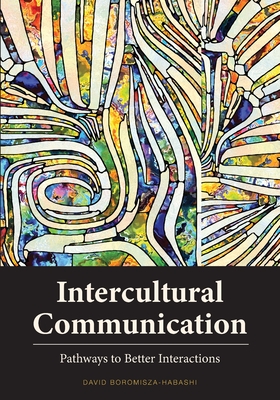
Boromisza-Habashi, David
Author David Boromisza-Habashi's approach is grounded in theory, yet relevant and highly accessible for students. Using vivid and relatable anecdotes, he deftly explores the primary challenge of effective intercultural communication in our globalized world: the ability to properly coordinate interactions to achieve shared meaning.
The vital importance of understanding cultural communication, and how it relates to being a responsible member of society, is stressed throughout the book. The weaving of scholarly work and everyday encounters highlights the role of inquiry as not just an academic endeavor but as an everyday practice. Strategies for coordinating intercultural encounters in the real world encourage readers to take action and recognize that this work and learning doesn't end when the course ends. Rather, it is a process, one that should be an ongoing part of their lives.
The pragmatic, thought-provoking approach of this book is timely, useful, and relevant. Intercultural Communication: Pathways to Better Interactions is the ideal textbook for students of intercultural communication who wish to create and foster meaningful social interactions.







